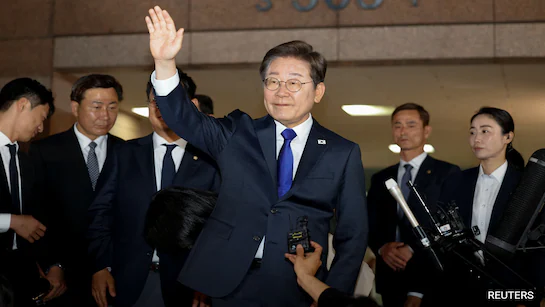Introduction
South Korea’s democracy has emerged stronger following one of its most turbulent political periods South Korean. On June 4, 2025, opposition leader Lee Jae-myung won the presidency after the impeachment and removal of former President Yoon Suk Yeol. This snap election marked a dramatic return for Lee and a shift in public sentiment toward restoring democratic norms.
The Fall of Yoon Suk Yeol
Yoon Suk Yeol’s presidency ended in disgrace after he attempted to enforce martial law amidst domestic unrest, sparking nationwide protests. His abuse of power led to his impeachment and arrest, with charges still pending. The People Power Party (PPP), already fractured, saw further chaos when two successive acting presidents were also impeached.
Lee Jae-myung’s Remarkable Comeback
Lee, leader of the Democratic Party (DP), had narrowly lost the 2022 election to Yoon. Once tainted by scandals and a polarizing public image, he made a surprising comeback. Emphasizing unity and democratic recovery, he struck a centrist tone in 2025 and captured voter sentiment yearning for change.
In his victory speech, Lee stated: “Recovering South Korea’s democracy will be my first priority.” The sentiment resonated, especially among voters disillusioned with the political instability of the PPP.
Election Results and Public Sentiment
Lee Jae-myung’s main rival, Kim Moon-soo—a former Yoon cabinet member—conceded defeat early on Wednesday. Lee secured a clear majority of votes, with over 60% counted by national broadcasters. Voter turnout hit 79.4%, the highest since 1997, reflecting a deeply engaged and frustrated electorate.
Challenges Ahead for President Lee
While Lee’s victory is significant, he faces multiple challenges:
- Rebuilding National Unity: South Korea remains deeply polarized after years of partisan conflict under Moon and Yoon.
- Legal Challenges: Lee faces a Supreme Court trial for alleged election law violations. Though sitting presidents cannot be prosecuted (except for insurrection or treason), a guilty verdict could reignite political instability.
- US-South Korea Relations: With Donald Trump back in office in the US, renegotiating trade tariffs is urgent. South Korea’s export-driven economy is already feeling the pinch from reduced US demand.
Rise of Lee Jun Seok and Young Voters
Another twist in this election was the surge in support for Lee Jun Seok, an anti-feminist Reform Party candidate who appealed to many young male voters. Though he ultimately dropped out, his presence reshaped the electoral landscape and could define conservative politics in the years to come.
Lee Jae-myung must now navigate a divided society where conservative voices remain loud and active. With a strong pro-Yoon base still fueling conspiracy theories and protests, any move toward accountability may inflame tensions.
Conclusion
South Korea’s 2025 election was more than just a political contest — it was a referendum on democratic integrity. Lee Jae-myung’s victory sends a strong message: the people demand transparency, reform, and unity.
However, healing the wounds of the past, restoring trust in institutions, and managing foreign relations in a rapidly changing geopolitical climate will require more than campaign promises. It will take courage, negotiation, and consensus-building.
For continued updates on South Korean politics, visit:


